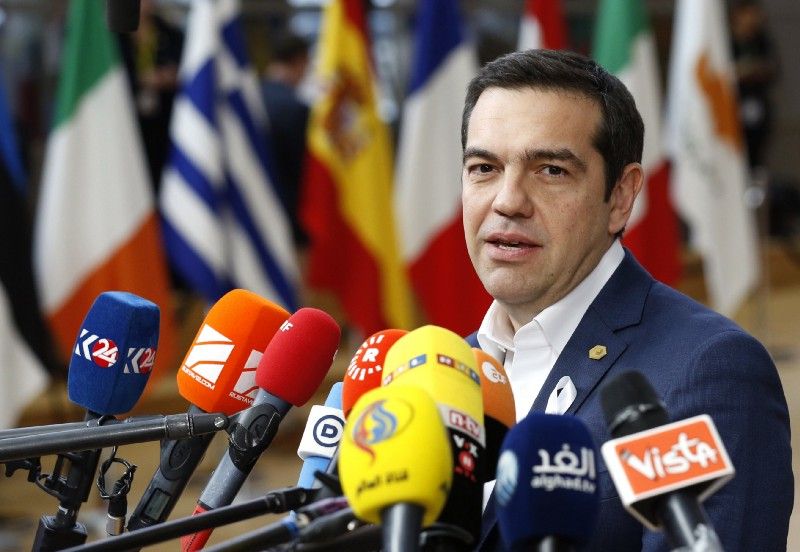For nearly three decades now, a tiny Balkan country north of Greece has been fighting with Athens over something very basic: its own name. The country in question — known internationally as the “Former Yugoslav Republic of Macedonia” — wishes to be known simply as “Macedonia.” But the Greeks object — they say that would imply a territorial claim on the northern Greek region of the same name.
As a result, Athens has consistently blocked the “Former Yugoslav Republic of Macedonia’s” path to joining both the EU and NATO.
In recent weeks, Greek Prime Minister Alexis Tsipras (pictured above) and his Macedonian counterpart Zoran Zaev have signaled the possibility of a deal that hinges on a modified version of “Macedonia.”
Both Washington and Brussels would love a breakthrough here — they see the country’s accession to the EU and NATO as a boon to Balkan stability and a bulwark against Russia’s growing influence in the region.
For Tsipras a deal would curry favor with Brussels at an opportune moment. Athens is about to exit its financial bailout plan but still has to negotiate next steps with the EU. And being in Washington’s good graces ought to help him as tensions with perennial foe Turkey continue to rise.
But Greeks are overwhelmingly opposed to any concessions to Macedonia, as is Tsipras’ nationalist coalition partner. Mishandling the issue could backfire terribly.
Alas, if only Alexander the Great (of Macedon!) had held his empire together — none of this would matter.
